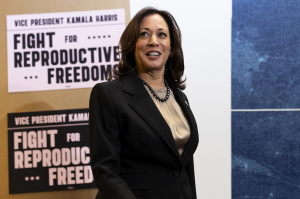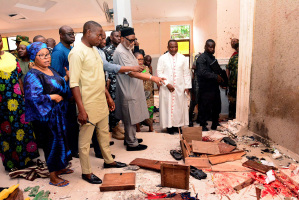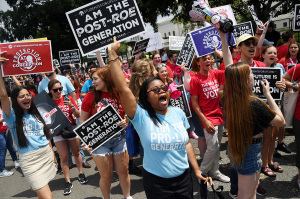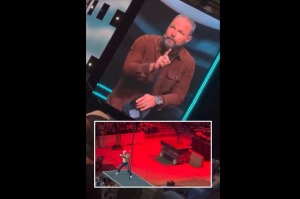Putting the Worship Wars in Perspective

In a 1960 interview on Meet the Press, Martin Luther King, Jr. famously observed, "It is one of the tragedies of our nation, one of the shameful tragedies, that 11 o'clock on Sunday morning is one of the most segregated hours if not the most segregated hour in Christian America." While King was talking about race, today the same point might be made about music as churches increasingly segregate into "traditional" and "contemporary" services, with each offering a music and worship style that is tailored to a particular constituency.
This tendency to segregate congregations into various special interest factions, each with its own music and worship style, represents a sort of uneasy détente, an attempt to restore peace to congregations that have been divided by the so-called worship wars. Hymns vs. choruses; drums vs. organ; emotion vs. reverence. Now we don't need to choose sides and we don't need to seek a way to find a deeper unity: everyone can have the service thatthey like.
But that kind of resolution comes at a significant cost. To begin with, segregation seeks détente by sacrificing the diversity that is to characterize the church (1 Cor. 12:4-6). More fundamentally, it feeds into a consumer mentality that church exists to meet my needs rather than to equip me to meet the needs of others. This attitude was perfectly captured by a friend of mine who once said he'd stopped going to a particular church because he "didn't get anything out of the worship." But worship is about giving, not getting.
So if segregating the congregation into special-interest services isn't the answer, how might we begin to change attitudes on the nature of church and worship? In the remainder of this article, I'd like to suggest one approach that draws on what psychologists call the contrast effect. A contrast effect involves strengthening or weakening a perception by juxtaposing it with a contrasting state of affairs. For example, the first warm spring day after a long winter is unforgettable, precisely because it is contrasted with the spell of long bleak cold weather you just endured. That's the contrast effect at work.
With that in mind, I would like to suggest a contrast that would put our current worship wars into proper perspective. While I recognize that many people believe the worship wars are a great reason to argue with and divide from one another, I think our attitudes might change if we contrasted our current battles with the kinds of divisions that other churches face, and which they seek to overcome. With that in mind, allow me to present two contrasting Sunday mornings at 11 o'clock.
11 o'clock at a church in North America
Our first church is one of those typical North American congregations which has been divided by way of musical and worship styles. We join the service in progress:
As everybody rose to sing, Al stayed seated in the pew, arms crossed defiantly. He never stood during the choruses: driving drums, distorted guitar and vacuous lyrics. "They make it sound like Jesus is my boyfriend," he muttered darkly. "Everything sounds like it came straight off secular radio."
Al scanned the sanctuary. Granted, a number of new young families had started coming to church in recent months. But that seemed to be all this foolish young "worship" pastor cared about: "New, young families." Al made eye contact with Fred across the aisle. Fred was standing, arms crossed, with a scowl that could make paint peel. "I'll have to speak with Fred after church," Al thought. "We need to take action. It's time to get rid of that twit up there with his 'Jesus boyfriend choruses'."
11 o'clock at a church in Rwanda
We now turn to our second congregation. This church is in Rwanda, an African nation that suffered an infamous genocide in 1994 during which Hutus slaughtered 800,000 Tutsis in three months. Now ask yourself what would it look like for a church composed of Hutus and Tutsis to find unity in the shadow of that unspeakable horror? Again, we join the service in progress:
Emmanuel always felt the pain, especially at Easter. It had been over twenty years since his wife and children had been massacred in the genocide. People had said that the pain would lessen over time. Emmanuel had believed them for a while. But he didn't any longer. Every day he thought about his precious daughters. Today they would be young women, but instead they were cut down as innocent children...
Emmanuel looked around the congregation at the Hutu Christians is his midst. He'd never know all that they had done and failed to do during those dark months of terror. But he did know that as the killing continued, Paster Sebahive had refused to offer Tutsis sanctuary. Some reports suggested that Pastor Sebahive had done even worse things. Emmanuel couldn't be sure, but he had his suspicions. Even so, he also knew that Pastor Sebahive had long pleaded for forgiveness for his role. He had admitted that he had not done enough to help his Tutsi congregants. And since those bloody days, he had long been among the most active members of the reconciliation movement in the community. "Emmanuel," he had once said with tears in his eyes, "I will forever live with the consequences of my sins and failures. It is my great sadness that you must as well."
In that moment, so many years ago, Emmanuel had finally decided to forgive Pastor Sebahive for the things he'd done and the things he'd left undone. But it wasn't easy. Nonetheless, as Pastor Sebahive's deep baritone voice rose up from the congregation and out over the green misty hills of Rwanda with an impromptu rendition of "Amazing Grace," Emmanuel felt just enough strength to forgive for yet another day.
Conclusion
While my intention is not to trivialize the worship wars, nonetheless, when I consider the contrast of a Christian like Emmanuel seeking unity in the aftermath of genocide, I can't help but think that it is a real luxury that North American churches have the privilege to debate musical styles. Genocide vs. electric guitars: the contrast kind of puts things in perspective, doesn't it? To sum up, when we find unity in Christ despite our differences – whatever those differences may be – we begin to live out the ministry of reconciliation to which we've been called (2 Cor. 5:11-21).
So let it be.




























